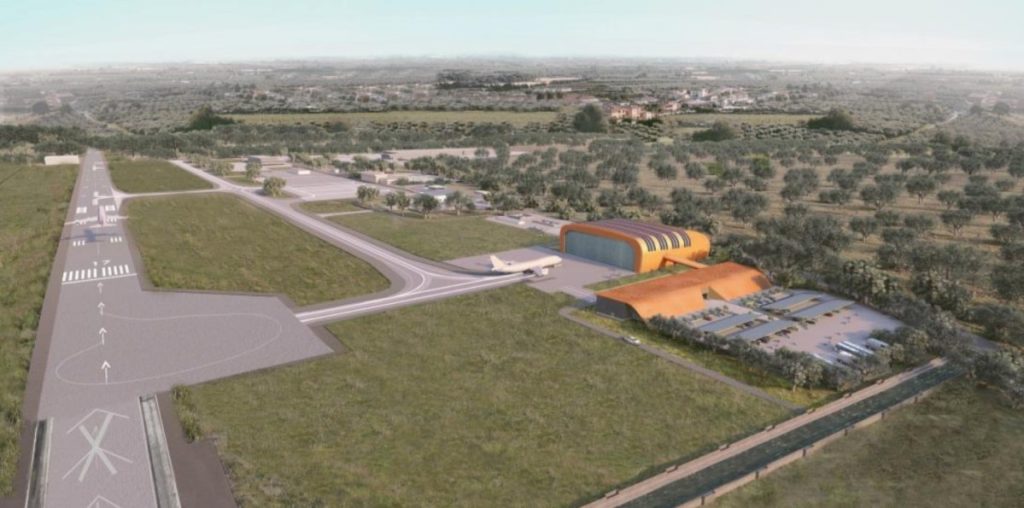
Virgin Galactic signs agreement to study suborbital spaceflights from Italian spaceport (Image Credit: Space News)
WASHINGTON — Virgin Galactic has signed an agreement with the Italian government that brings the company a step closer to operating its suborbital spaceplanes in that country.
The company announced Dec. 12 that it signed a cooperative agreement with Ente Nazionale per l’Aviazione Civile (ENAC), Italy’s civil aviation regulator, to study the feasibility of operating the company’s Delta-class suborbital spaceplanes from Grottaglie Airport in southern Italy.
“With momentum building as we look ahead, now, today, is the time for Virgin Galactic to take the critically important next step of assessing the location and the operational feasibility of our first spaceport outside of the United States,” said Michael Colglazier, chief executive of Virgin Galactic, at an event at the Italian Embassy here where the agreement was announced.
The agreement has two phases, said Mike Moses, president of spaceline at Virgin Galactic. The first will examine technical and operational issues from operating at Grottaglie, a general aviation airport that the Italian government designated as a prospective spaceport in 2018.
“We’ll explore several key aspects of that new spaceport and cover our detailed technical and operational requirements, as well as evaluating the regulatory requirements,” he said. Those topics range from potential flight paths and access to airspace for flights at Grottaglie to infrastructure needs at the spaceport.
That work should be done by the end of 2025, leading to a second phase that will examine economic and related issues. “It’s our priority that any expansion into Italy not only be technically feasible but beneficial to the local community as well,” he said.
Planning for suborbital spaceflights in Italy dates back a decade, said Fabio Nicolai, deputy director of ENAC, at the event. His agency signed a memorandum of cooperation with the U.S. Federal Aviation Administration in 2014 and has since developed performance-based regulations patterned on U.S. rules.
The new agreement with Virgin Galactic is a “significant step forward,” he said. “This work will lay the foundation for safe and sustainable commercial operation in Italy.”
This is not the first time that Virgin Galactic has signaled its interest in flying from Italy or even this specific spaceport. In 2018, the company signed agreements with the Italian companies Altec and Sitael to examine flights from Grottaglie, two years after an earlier agreement between Altec and Virgin to begin examinations of SpaceShipTwo flights from Italy.
More recently, the Italian government and the government of the Puglia region allocated 70 million euros ($73.5 million) to build infrastructure at Grottaglie to support spaceport operations. That would likely include a hangar and related facilities at the airport, which has a main runway 3,200 meters long.
Virgin Galactic did not disclose when the full study would be completed, but any flights from Grottaglie Spaceport will likely be several years away. The company is currently focused on building out an initial fleet of Delta-class suborbital spaceplanes that will operate from Spaceport America in New Mexico. In August, the company disclosed financial projections that saw that spaceport ultimately hosting 275 flights a year, using four spaceplanes and two mothership aircraft, generating nearly $1 billion in annual revenue.
Colglazier said in an earnings call in August the company was considering options for additional spaceports outside of the United States. “I think that’s a four- to five-year effort to bring a new spaceport online,” he said then. “I think ’25 is the window when you would see us probably wanting to talk about something there.”
The company announced in November plans to raise $300 million to accelerate development of additional spaceplanes and a mothership aircraft for Spaceport America that Doug Ahrens, chief financial officer of Virgin Galactic, said would become “the economic engine that generates more than enough cash flow to expand to other spaceports around the globe.”
Colglazier said at the Italian Embassy event that the company was on track to begin assembly of the first Delta-class spaceplane in the first quarter of 2025 at a new factory near Phoenix.








